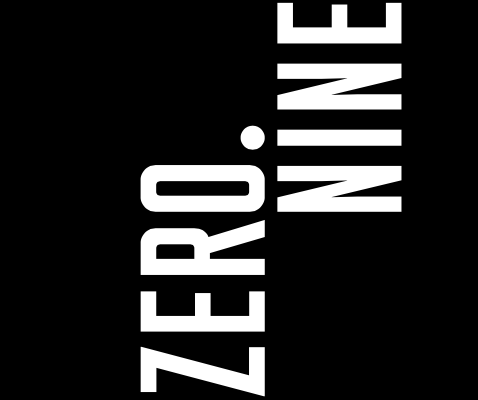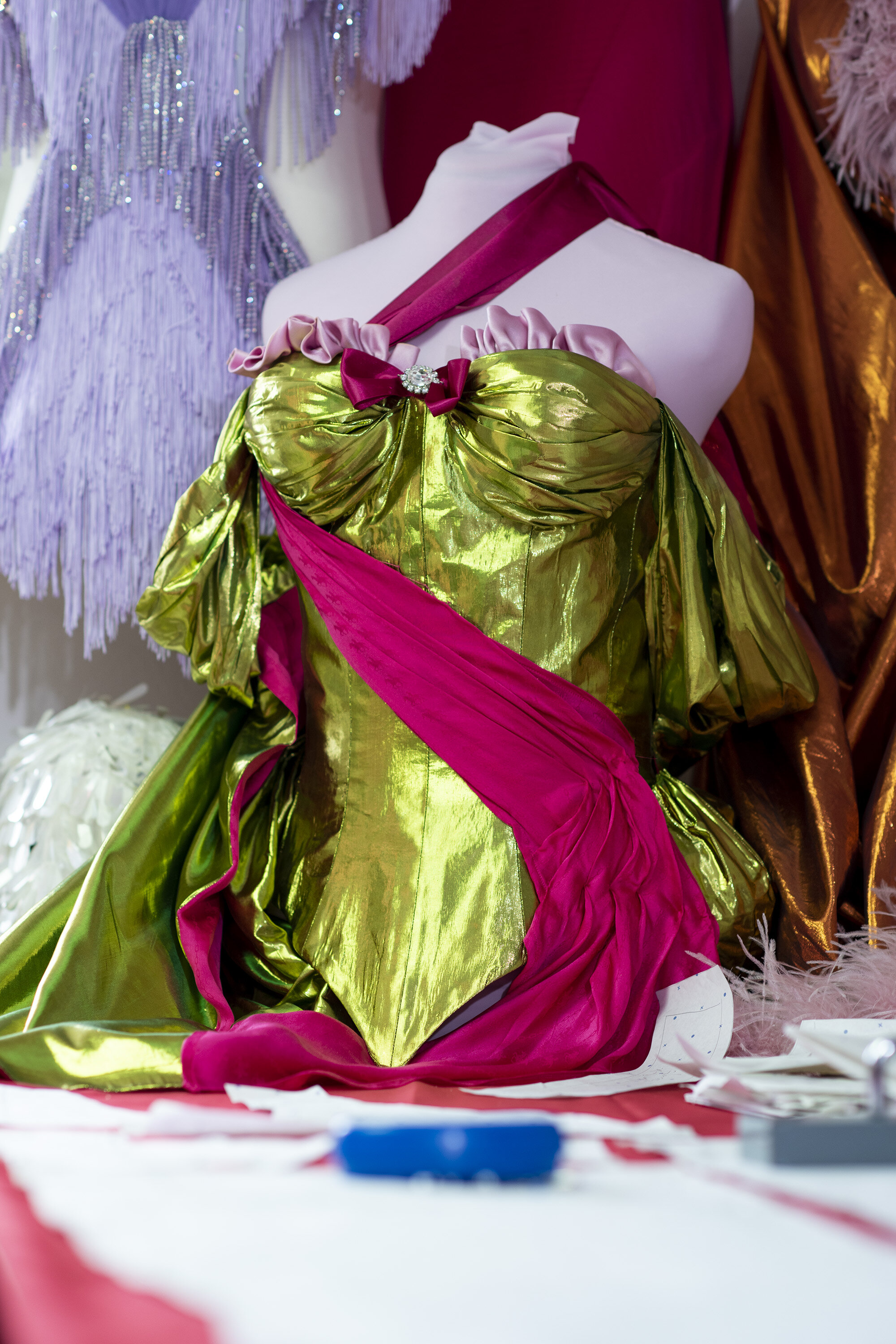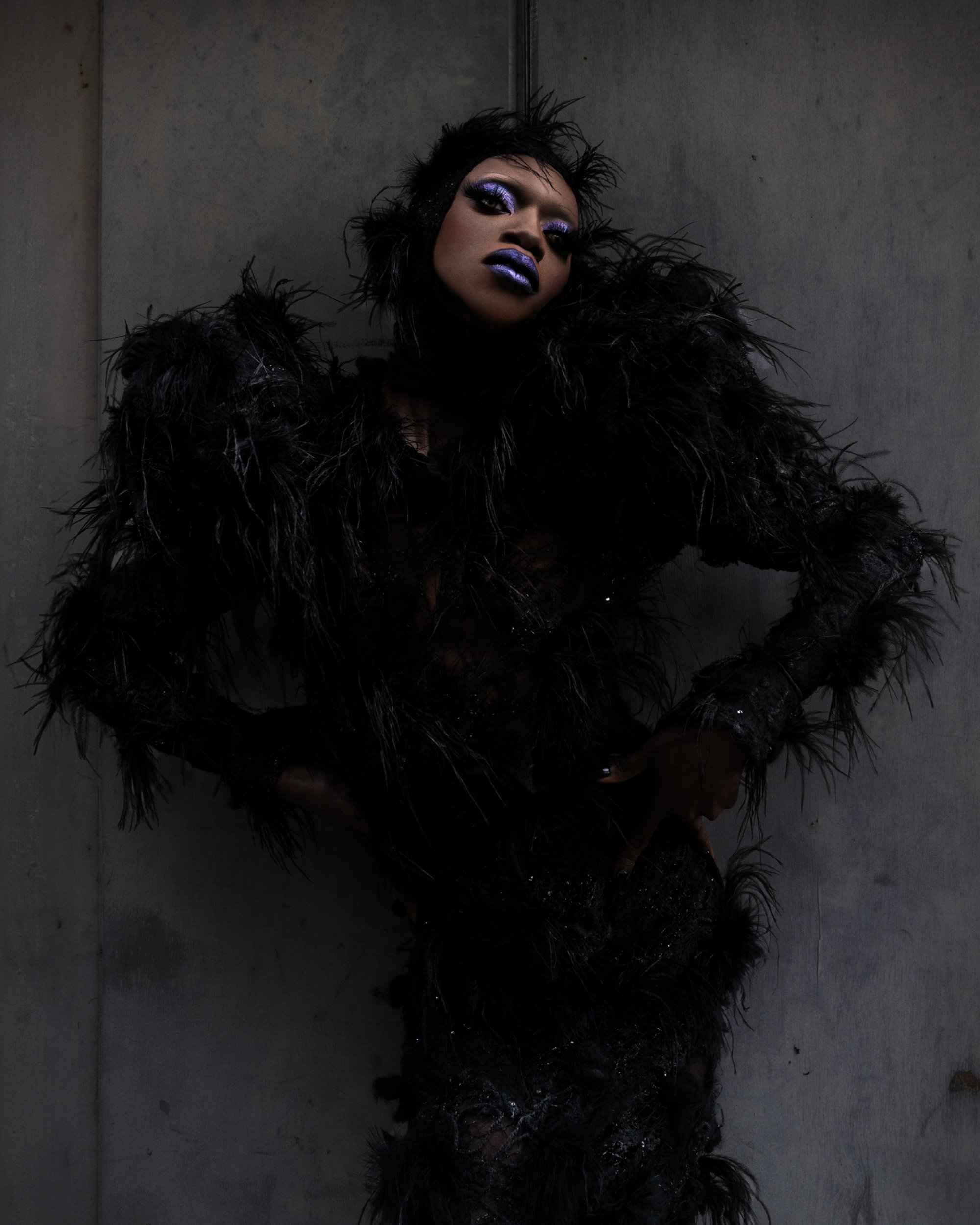Fancy Boy
Fancy Boy is a London based costume designer to most of the nation’s drag queen stars, most notably, Tayce and Cheryl Hole from Ru Paul’s Drag Race UK. We sat down with the designer Harry Whitham in his studio in East London to talk all things sparkle and rainbow washing.
Interview Sufiyeh Hadian Photography Christian TrippeTell us how you got into costume design?
Well, like lots of other young gay boys in the early 2000’s, I was obsessed with designers like Alexander McQueen and John Galliano for Dior. I would buy all the fashion magazines that had entire collections in it and just poured over them. I was also doing a lot of youth theatre and getting into that theatrical side of things and learning how to express myself properly. I've always been drawn to very artistic, craft elements, I realised that it’s what I wanted to do; learning different techniques, the makings versus tailoring and how you bring all those different elements to it.
When I was 17, I was sick of living in Shetland and living at home. So, I moved to London to study fashion portfolio at London College of Fashion, rather than finishing school, which was great, but I didn't really enjoy the overarching pretentious fashion world. It wasn’t as fun as I thought was going be like, it just felt really like cold to like a 17-year-old child. After that, I veered into costume design, I wanted to keep that kind of craft element alive, so I went into theatre performance. From there, I started working in theatres, running a wardrobe and dressing performers.
Now that drag has become this whole industry that you can make money from (which nobody saw coming), I’ve turned my eye to drag costumes. I'm just obsessed with making sure that everything is always fun. I hate the idea of having a boring, miserable life.
“I'm just obsessed with making sure that everything is always fun. I hate the idea of having a boring, miserable life.”
Have you always been interested in drag culture?
My best friend introduced me to Drag Race, which was in its sixth season at the time. I was like, ‘Oh, my gosh, we've never seen any gay men on television before. This is representation. This is so great. I want to part of this.’ I didn't understand drag as drag culture until I saw Ru Paul’s Drag Race. But yeah, as a child, I was very interested in dressing up in my mum and my sister's clothing, which they were very encouraging of. And so, I was very able to explore femininity, which is what I suppose what has really driven me as well, just being able to unashamedly explore femininity as a man, and I think that has subconsciously driven my choices.
“I suppose it's not really drag culture I was engaged with when I was younger, but more gender expression, with creativity and flamboyance.”
I suppose it's not really drag culture I was engaged with when I was younger, but more gender expression, with creativity and flamboyance. The industry just kind of appeared for me six years ago and I'm just like; ‘Oh, yeah, this makes total sense. Of course, I'm supposed to be here.’
Do you think there's been a renaissance of camp recently?
Yeah, I think the world even before the ‘camp’ Met Ball, and things like Drag Race probably opened up camp into the mainstream zeitgeist, but I don't think it's solely responsible. I think that queer people have been given a little bit more agency within the creative fields, within the past 10/15 years, and it's kind of like, bled more now than they've been ‘allowed’ to be themselves. And so that's what's become trendy, and people are like ‘Oh my God, what you're doing is actually really cool. We want a bit of that.’ it's very trendy at the moment, camp is very on trend.
I think that some people are engaging with it because it is trendy. And yes, it's going to take time to catch up with the rest of the nation, or smaller towns. And yes, there are going to be people who don't understand where it's coming from. And some who will be engaging with queerbaiting. But I think if someone doesn't understand where it comes from, they might learn about its history to engage with it, and that's going to be a great steppingstone for the next generation. Or the generation after that.
What are your thoughts on rainbow washing?
I'm not a fan of everything Rainbows, visually, it's a bit jarring, but no, the engagement with using queer issues as a kind of trend to make money, is not ideal. So, lots of companies for Pride will be like, ‘Our bank is going to use this praise train. And we are going to say we're doing the right thing by posting a rainbow logo’, but there's no support for queer issues or raising money for charities, and they're probably not engaging with trans rights. And if they are, it’ll only be white gay men that will be benefiting from it.
“The engagement with using queer issues as a kind of trend to make money, is not ideal.”
Or it could be like the Starbucks rainbow cup, it's like super expensive to buy and they're going to give like two pence for every sale to charities. It's not giving back. However, I do think there's another side of the coin, for instance, in the middle of the Highlands, some very conservative parents who have a queer child, and they don't understand how to engage with that child. They go into Starbucks one day, and they're like, ‘Oh my god, Starbucks are selling rainbow cups. That means that the world at large, will accept my queer child.’ They see it everywhere. They go into Barclays and see their queer child is represented there, or all these corporations are actually talking about trans issues, so I can take my child here and not fear for their pronouns to be triggered. So, in a way, it's great for the older generation of people who might not be queer, but have to engage with it. So yeah, I think it's good to an extent, but let's take it and let's keep going. And let's go further.
How do you usually celebrate Pride?
At Pride 2019, I was in the wardrobe room at the Apollo Theatre, which is where ‘Jamie’ the musical is on. I remember trying to fight my way through drunken crowds just to go and get lunch, I wasn’t that into it. I feel like my life is so clear and so engaged with queerness that when Pride comes around, I’m like oh yeah of course, there it is, but it doesn't feel different to any other day to me. It’s great that everyone's celebrating, but then, especially at London Pride, you get groups of very straight, white friends who think of it as just a party, which is nice for them. But just remember, you're going to be in someone else's space. You can take your little Instagram videos and stuff, but remember to engage and you know, give room for the people it’s for. And don't be judgmental of everyone there, be supportive.
When I was younger, I was terrified of Pride. Really, absolutely terrified of it. And I didn't go for so long. It's only in the past five years that it's something I've engaged with. I actually felt like I didn’t fit into that crowd; the typical muscle-bound masculine man with angel wings on, the very obvious pride stuff was very scary, because I felt like ‘I don't even fit in here.’ Being masculine is still, even though this is a queer space, at the top of the food chain. Ten years ago, I never saw myself represented, let alone other minorities or ethnicities. I still don't like the exclusiveness of gay queer spaces. I've got my groups of queer friends, that when we get together, we all dress up, get drunk, and there's no one there that's interested in anything masculine. It's like we get to be like, fun and girly. And like, just engage in all the fun stuff that we like.
“We all dress up, get drunk, and there's no one there that's interested in anything masculine. It's like we get to be like, fun and girly.”
What do you love most about what you do?
I actually really love my job so much. I was reflecting on this the other day, I'm in control of every element of my own life, which I really, really love. I love the fact that I get to meet really interesting people, support a great community that I love, and I get to make amazing things. And I get to be crafty. And I get to use my hands. That's why it's so nice. I really enjoy the process of being creative. And the fact that I can do this and sustain myself, pay my bills. All I want to do is move to the country, get a massive studio, make people come to me for fittings and just have a really, nice, sustainable life. Just to enjoy it. And then have big party on the weekends.
Follow Fancy Boy on Instagram to see more of his work.






































